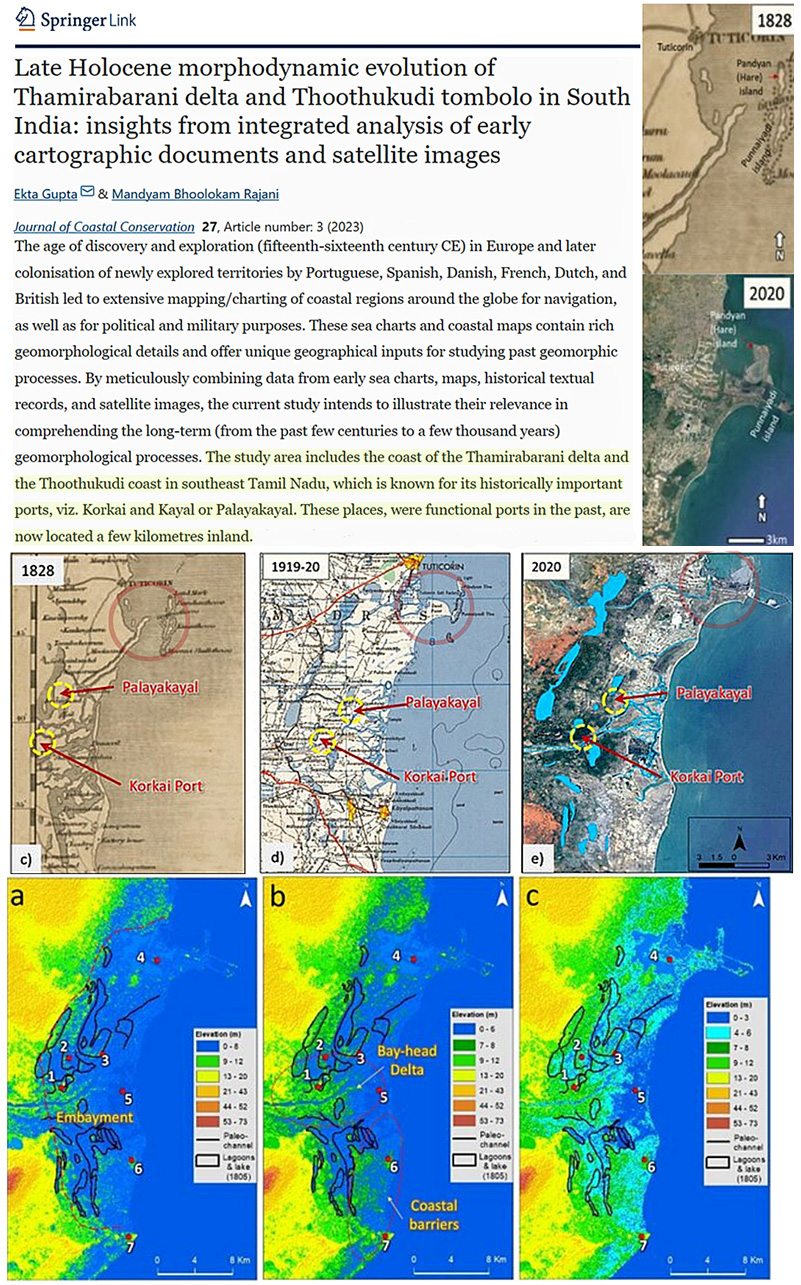Contrary to alarmist claims, the seas have been retreating and the coasts have been expanding seaward along the coasts of southern India since the early 1800s.
Korkai was a port city, capital, and the principal trade center for India’s Pandya Kingdom from the 6th to 9th centuries CE.
While Korkai was situated on the sea coast during the early stages of the Medieval Warm Period, the city center is now approximately 5 or 6 km from the coast. This confirms the sea has substantially receded since then.
Nautical maps from the 1805-1828 period clearly affirm the coast of southern India has continued expanding seaward in the last 200 years, despite the reported rise in relative sea level (Gupta and Bhoolokam Rajani, 2023).
In other words, much more coastal land area is above sea level today than during the Little Ice Age, or when CO2 levels were said to be 280 ppm.






That’s because Global Warming has made India so hot that the seas are evaporating.
[…] Related: New Study: Sea Levels Have Receded Over Last 1500 Years, Including Since 1800s, Along India’s Coas… […]
Look at where Thermopyle is. The archeological evidence is undeniable.
HMMMMM: Korkai, Thermopylae and other communities SURVIVED profound geomorphological changes WITHOUT “assistance” from alarmists. Perhaps, contemporary society should learn from their experience.